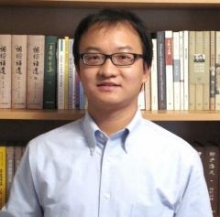CEE Seminar: The Role of Green Infrastructure in Sustainable Urban Development - Modeling & Implications

Senior Sustainability Scientist
Arizona State University
School of Sustainable Engineering & the Built Environment
Abstract: Today, urban areas are home to more than half of the world’s population, with a projected urban population of 6.3 billion (68 percent total global population) in 2050. The concentration of population in urban areas has positively affected economic growth, with generation of more inventions and business ideas. Concomitant with rapid global urbanization, changes of land-use and land-cover types combined with modified land-surface processes, have significant impacts on urban environmental and engineered systems, leading to excessive thermal stress, degradation of water/air quality and an increase in building energy consumption in cities. To mitigate the adverse environmental impact, researchers, practitioners and city planners have designed multiple forms for “greening” the built environment by increasing the abundance of vegetation, popular landscaping strategies including lawns, sidewalk trees, parks, rooftop gardens and urban agriculture and forestry, to name a few. In this seminar, we will discuss the state-of-the-art numerical modeling techniques of the biogeophysical functions of popular urban green infrastructure, highlighting their contributions and limitations in light of climate-energy-water repercussions. In addition, we will discuss some of the open challenges in urban climate modeling in general, including the scale effect and the nonlinearity in land-surface interactions that are further complicated by the presence of vegetation. Ongoing research activities on optimizing design and implementation of urban green infrastructure are highly informative to practitioners, planners and policy makers for sustainable development of cities in the future.
Bio: Zhihua Wang is an assistant professor in the School of Sustainable Engineering and the Built Environment and a senior sustainability scientist at the Global Institute of Sustainability at Arizona State University. Wang obtained bachelor's (2002) and master's (2004) degrees from the School of Civil and Environmental Engineering at Nanyang Technological University in Singapore, and master's degree (2008) and doctorate from the Department of Civil and Environmental Engineering at Princeton University. His primary research interest is on the urban environment under the changing climate, including urban climate modeling, urban infrastructure, energy-water nexus and sustainable development of cities. He has published 58 peer-reviewed papers in many prestigious journals in civil and environmental engineering, hydrometeorology, geophysics and atmospheric science, and numerous conference presentations and invited talks at various professional institutes. Wang is currently serving as the co-director for climate system research at the U.S. Environmental Protection Agency-designated National Center of Excellence on SMART Innovations. He is an active member of the American Society of Civil Engineers (ASCE), American Geophysical Union (AGU), American Physical Society (APS), American Meteorological Society (AMS) and International Association of Urban Climate (IAUC). He served as a board member of AMS’ Urban Environment Board in 2014-2016. His academic services also include organization and coordination of academic conferences, and providing expert reviews for book proposals, journal papers and grant proposals for several U.S. federal agencies including the National Science Foundation, National Aeronautics and Space Administration, Army Research Office and Environmental Protection Agency.
Share
Download
Upcoming Events
-
MSE 298 Seminar: Quasi-1D/2D Charge-Density-Wave Materials - From Exotic Physics to Application Prospects
-
EECS Seminar: Steering Diffusion Models for Generative AI, From Multimodal Priors to Test-Time Scaling
-
MAE 298 SEMINAR: Hypersonic Viscous Aerothermochemistry - External Aerothermodynamics and Scramjet Fuel-Air Mixing
-
CBE 298 Seminar: Finding Catalysts of Gut Reactions - The Gut Microbiota in Disease Onset and Treatment
-
CEE Seminar: Confirming a Critical Foundation of Global Warming - Direct Observational Evidence from Space of the Impact of CO2 Growth on Infrared Spectra
